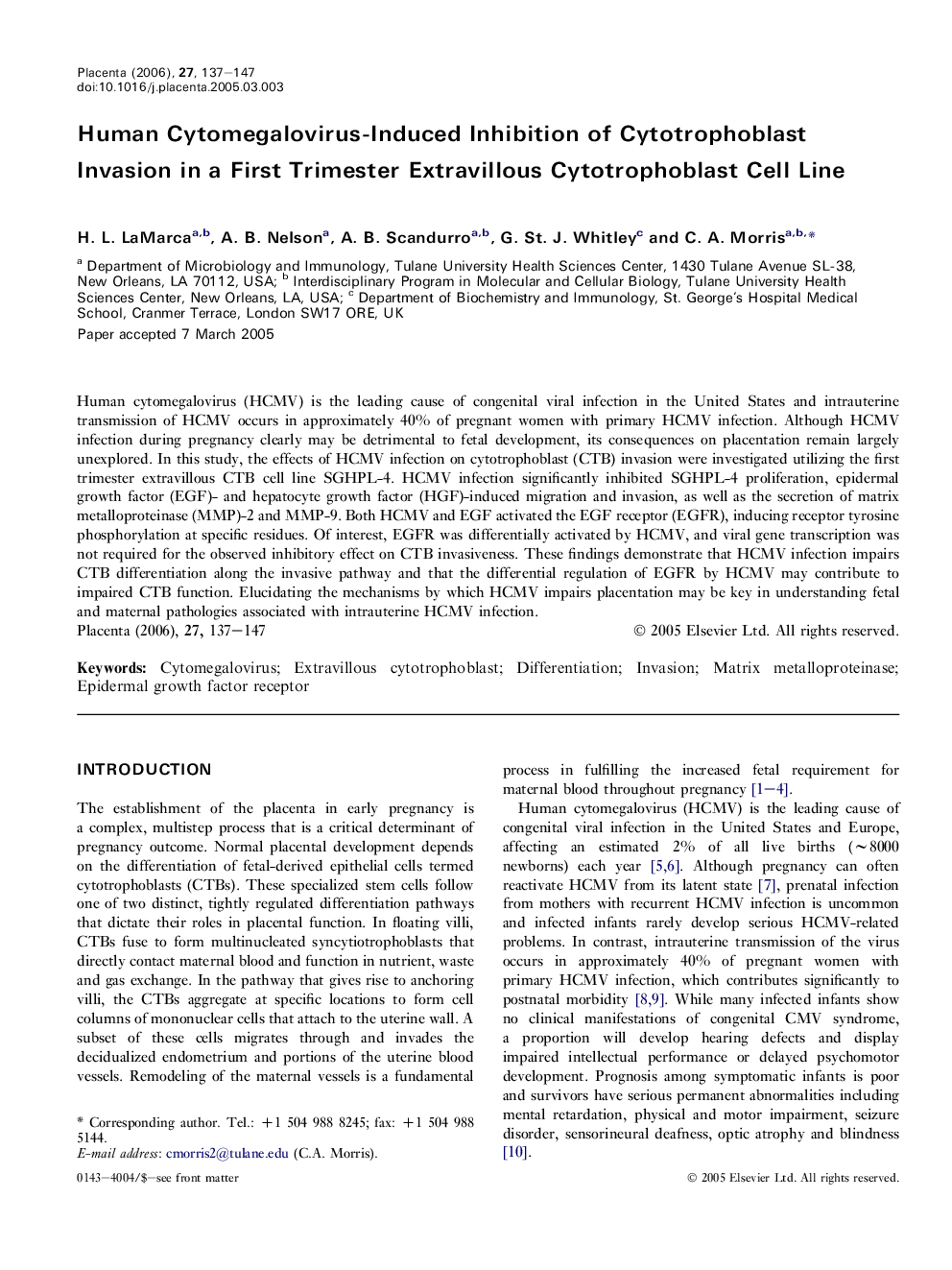| Article ID | Journal | Published Year | Pages | File Type |
|---|---|---|---|---|
| 2790155 | Placenta | 2006 | 11 Pages |
Human cytomegalovirus (HCMV) is the leading cause of congenital viral infection in the United States and intrauterine transmission of HCMV occurs in approximately 40% of pregnant women with primary HCMV infection. Although HCMV infection during pregnancy clearly may be detrimental to fetal development, its consequences on placentation remain largely unexplored. In this study, the effects of HCMV infection on cytotrophoblast (CTB) invasion were investigated utilizing the first trimester extravillous CTB cell line SGHPL-4. HCMV infection significantly inhibited SGHPL-4 proliferation, epidermal growth factor (EGF)- and hepatocyte growth factor (HGF)-induced migration and invasion, as well as the secretion of matrix metalloproteinase (MMP)-2 and MMP-9. Both HCMV and EGF activated the EGF receptor (EGFR), inducing receptor tyrosine phosphorylation at specific residues. Of interest, EGFR was differentially activated by HCMV, and viral gene transcription was not required for the observed inhibitory effect on CTB invasiveness. These findings demonstrate that HCMV infection impairs CTB differentiation along the invasive pathway and that the differential regulation of EGFR by HCMV may contribute to impaired CTB function. Elucidating the mechanisms by which HCMV impairs placentation may be key in understanding fetal and maternal pathologies associated with intrauterine HCMV infection.
